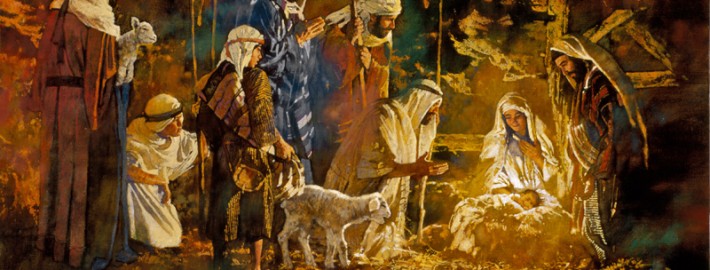The Gospel: How Vocation Follows Redemption
Over a number of posts, I will be exploring the wider dimensions of the Gospel as articulated by the New Testament, helping us fill in gaps that Ghanaian Christianity tends to ignore, so we can work towards better discipleship. This is part 1. Stick around.
And they sang a new song, saying: “You are worthy to take the scroll and to open its seals because you were slain, and with your blood, you purchased for God persons from every tribe and language and people and nation. You have made them to be a kingdom and priests to serve our God, and they will reign on the earth.” (Rev 5:9-10 NIV)
If you have been around Ghanaian Christianity for any length of time, you are bound to have heard “the Gospel” expressed in various ways, but mostly summarized as follows.
“God loves you. But you are a sinner and cut off from God (and at risk of hellfire). God has sent Jesus to come and die for your sins. If you accept Jesus, all your sins will be forgiven, and you will have a place in heaven”.
Again, these may not be the exact words, and some details may be more emphasized than others or phrased differently. But if you are honest, you can identify this message in many evangelistic tracts, sermons, “crusades” and the like on the Ghanaian Christian landscape.
But over the years, as I have compared popular renditions of “the Gospel” with the version summarized by Rev 5:9-10 quoted above, I notice a wide gap between what the New Testament says the Gospel is, versus what tends to pertain in Ghanaian Christianity. And in these series of posts, I will explore certain dimensions that I feel this passage brings to light that is usually ignored by much the Christianity that dominates Ghanaian circles. The key to the discomfort lies in v 10.
They Will Reign On Earth?
Permit me to deal with the end of that verse before we get to the beginning. Isn’t it weird that, contrary to popular opinions, v 10 says that the people from different tribes and nations purchased by the Lamb are made to “reign on earth”, and not in heaven?
I mean I was born and bred a Pentecostal, and the idea that the goal of my life was to “make it to heaven” was pretty well drummed into my head. I remember the many revivals where I was warned to look into my heart and be sure whether my final destination would be heaven or hell assuming Jesus’ second coming was to be in a few minutes. Basically, I had to be “rapture-ready”, as Jesus could come at any moment. So, what does it mean when those purchased by the Lamb are destined not for rule in heaven, but for a “reign on earth”? Were my well-beloved elders, deacons, and pastors selling me snake oil? Perhaps the answer may be closer than we think if we dig a little deeper.
A Kingdom and Priests
So, apparently this purchased group of diverse individuals are then made into a “kingdom and priests to serve our God”. What does that also mean? Perhaps the earliest usage of that phrase may give us some clues.
When God called Israel out of Egypt, he required them to keep his covenant, and if they did so, then he would make them his treasured possession and they will be for him “a kingdom of priests and a holy nation”. (Ex 19:5-6).
This would suggest that the goals that God had for choosing Israel (descendants of only 1 nation), are the same goals that he had for choosing this diverse group from many nations, languages, and cultures by virtue of the shedding of the lamb’s blood. So, if the goal was the same whether with ancient Israel or with the church after Jesus, then why the language of “kingdom of/and priests” to serve him?
The Imago Dei
An important point to remember is John H. Walton’s dictum – the bible was not written to us, but it was written for us. So, to understand biblical language, we need to immerse ourselves in the world of the people to whom the text was first written, and not look to our modern interpretations of what words mean.
In the Ancient Near Eastern (ANE) world of ancient Israel, it was the kings and their priests who were the intermediaries between the gods and ordinary people, much like we have in our Ghanaian cultural settings today. In this regard, our Nananom and our Wulomei were not very different from the culture that existed in ancient Israel, Babylon, Egypt or Canaan at the time of the Old Testament. In the ANE world, everybody was a slave of the gods, and only the kings and priests were “made in the image” of the gods. Hence the absolute power and almost “godlike” status afforded kings and their priests not only in the ANE world but even here and now, in Ghanaian traditional culture. It was and is a class system, pure and simple.
However, right from the beginning when the Creator God of Israel chooses to create, he breaks the chain of class systems by making all human beings “in his image”.
“So, God created mankind in his own image, in the image of God he created them; male and female he created them. (Gen 1:27 NIV)
Which raises a question. If God made all humans in his image, then why would he choose a certain subset of those humans (Israel) and give them the task to be “kings and priests” aka be image-bearers again? Isn’t he going against his own classless ideal?
Well, if there is one thing that has been established about human beings is that we are mimetic – we learn best from one another. And the 2nd thing that one can establish about human beings is that the way we treat each other and the world around us is very dependent on the mental pictures of god/gods (conception) that we have acquired throughout our lives. To address this 2 fold behavior of human beings, God’ choice of the people of Israel (and by extension, the diverse people called the church paid for by the blood of the lamb) is so that he will reveal himself to these people (changing their conception of God), and through them (applying mimesis), open the eyes of the rest of the world as to their real identity – people made in the image of a particular type of god.
In this respect, the choosing of the people of God is not so they feel privileged, singing “I’m walking in power, I’m walking in miracles”, but so they serve God by serving the world.
Wrapping up
All of this is work that is to be done not in heaven, but here on earth, extending into a “new heaven and a new earth”. To be a “kingdom and priests to serve our God and to rule on the earth” is to be a people who serve God by showing who God is to the rest of the world, both by deed and action, and not just in the spiritual sense, but in every sphere of life. It is in that way that we are truly “ruling on the earth”.
But since Ghanaian Christianity has largely sold itself a Gospel that is more about preparing us to go to heaven, we have lost a sense of vocation. We pile up the pews with more people waiting to go to heaven and make them of no earthly use.
What if we developed a different imagination for what the purpose of being saved was for? Then maybe, the incarnation of God in the person of Jesus might help us understand the particular kind of God we are dealing with, a subject we will broach in the next post.




